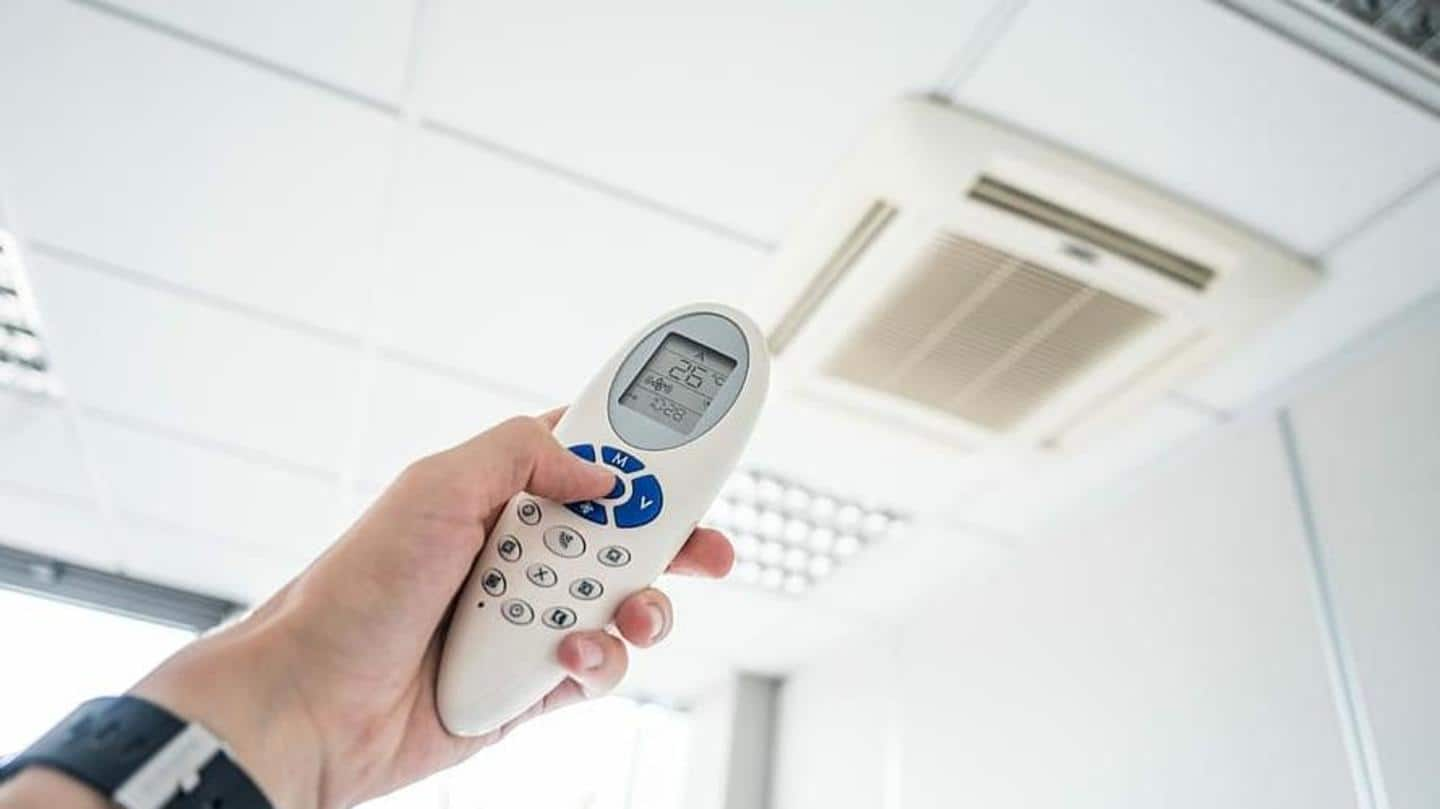
This 'air filter' can kill novel coronavirus: Here's how
What's the story
As the COVID-19 situation continues to deteriorate in countries like India and US, scientists, healthcare workers and engineers are doing everything possible to fight the pandemic, save as many lives as possible.
Now, to this end, a group of techies has developed a special air filter that can instantly "catch and kill" the deadly coronavirus (SARS-CoV-2) that causes the disease.
Here's all about it.
Problem
Growing concerns around airborne transmission
Even though SARS-CoV-2 primarily spreads through respiratory droplets that fall on the surface after being released via coughing/sneezing, concerns of airborne transmission have grown lately.
Following an open letter from over 200 experts, WHO also acknowledged that there is "emerging evidence" of airborne transmission, where lighter infected particles could be suspended through the air in closed, poorly ventilated environments by an infected patient.
Surface disinfection
Technology to kill the novel coronavirus
Engineers around the world have already developed UVC light-based disinfection chambers and tools to sanitize surfaces contaminated by coronavirus-carrying respiratory droplets.
Now, to expand this effort and prevent airborne transmission, researchers from the University of Houston, University of Texas, and Medistar Corporation have developed the filter that catches and kills the novel coronavirus particles suspended in the air too.
Effectiveness
99.8% coronavirus particles targeted in tests
When put to test in the Galveston National Laboratory run by the University of Texas Medical Branch, the filter was able to weed out 99.8% of SARS-CoV-2 viral particles in the air.
In addition to that, it also killed 99.9% of anthrax spores which, if inhaled, can also cause severe skin ulceration (malignant pustule) or a form of pneumonia.
Working
But, how it works?
The filter, as the researchers explain, has been made from commercially available nickel foam heated to 200 degrees centigrade.
The team knew that the virus cannot survive temperatures higher than 70 degrees centigrade. So, they chose nickel foam, which is electrically conductive — allowing for easy heating — and capable of letting air flow easily, to create the filter.
Suitability
Prototype satisfies requirements for HVAC systems
While testing the prototype of the electrically heated air filter, the team confirmed that it satisfies the requirements for conventional heating, ventilation, and air conditioning (HVAC) systems.
"This novel biodefense indoor air protection technology offers the first-in-line prevention against environmentally mediated transmission of airborne SARS-CoV-2 and will be on the forefront of technologies available to combat the current pandemic," said study co-author Faisal Cheema.
Goal
Goal to increase protection in high-risk environments
Currently, the team behind the novel filter is working towards a phased roll-out of their technology, especially in high-risk environments.
"This filter could be useful in airports and in airplanes, in office buildings, schools, and cruise ships to stop the spread of COVID-19," said project partner Zhifeng Ren. "Its ability to help control the spread of the virus could be very useful for society."